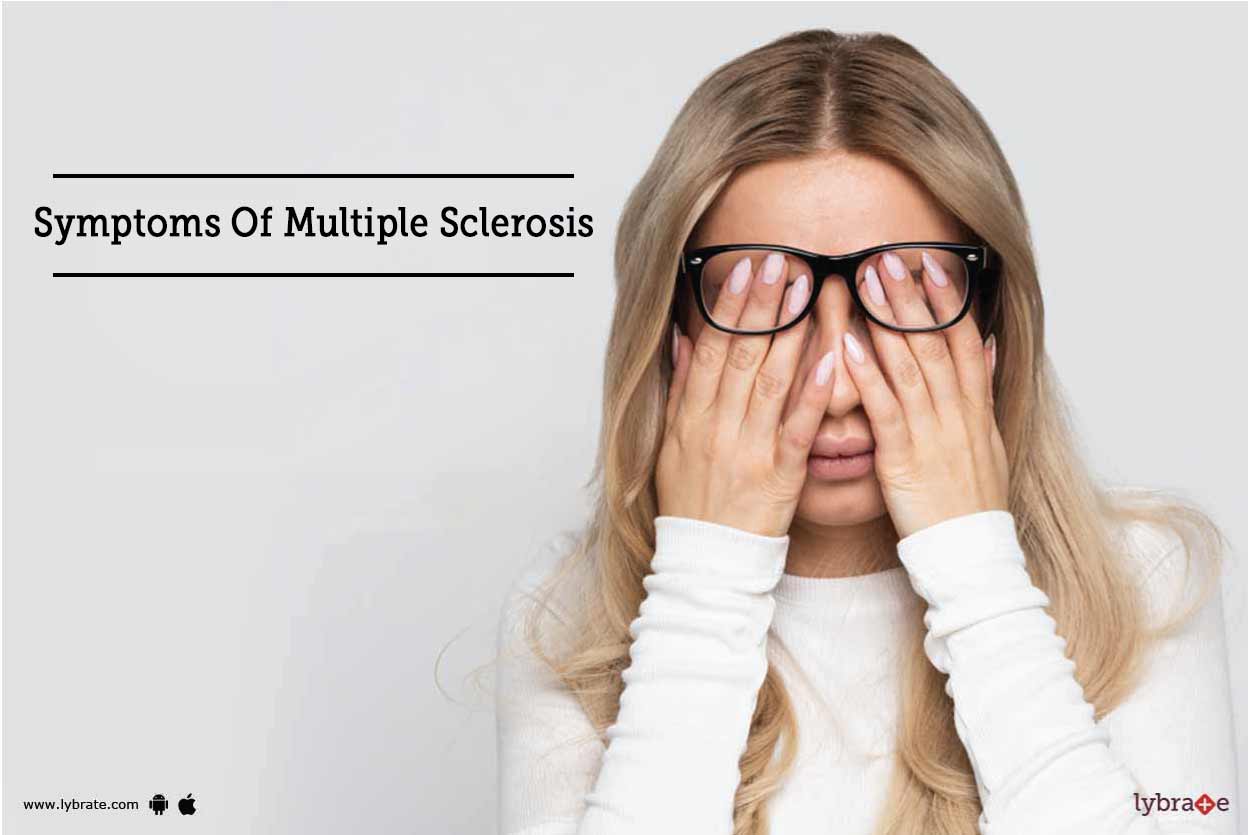Symptoms Of Multiple Sclerosis
Last Updated: Apr 13, 2020
The first sign of damage because of MS is always a feeling of numbness or pin-and needle like sensations usually occurring on face, arms, legs and fingers. This condition is also called as paresthesia where burning, tickling, itching, pricking, feeling of cold in affected area, buzzing, vibrating, throbbing like sensation characteristics are felt. The damage to nerves that are connected with the brain and spinal cord happen causing disturbance in transfer of signals around the body. These types of symptoms may last for a little while or for a long time and it can be treated with complementary and alternative medicine approaches like reflexology, acupuncture etc.
pains and spasms
MS is affecting central nervous system causing neuropathic pain and musculoskeletal pain where people complains about stabbing pains in the face, variety of sensation in the trunk and limb region etc. With such type of disease, chronic pain and aches caused by stiffness or muscle spasms are very common. People suffering from MS have symptoms like pain in back, neck and joints of body particularly occurring during walking, moving around. In this disease, lower extremities are generally affected with uncontrollable, painful jerking movements of the extremities.
weakness or fatigue
A most common and troublesome symptoms of MS is fatigue affecting almost 80% of people in the stages. Sleep disorder, depression or less availability of iron in body taking person towards fatigue where an overwhelming sense of exhaustion is felt. In MS like disease, if this fatigue is left untreated, it tends to be worse as it deteriorates nerves in the spinal column and people do not have energy to complete even simple things. Fatigue can appeared suddenly and may last for weeks should be treated on immediate basis.
balance problems or dizziness
A feeling of lightheaded or off-balance is associated with Multiple sclerosis as it is decreasing mobility of person by affecting central nervous system. Individuals are complaining about clumsiness, spinning of surrounding (vertigo), problems with maintaining balance and coordination. Such symptoms are associated with low blood sugar, dehydration or deceased blood pressure but its frequency and recurrent appearance indicates towards possibility of disease like multiple sclerosis. Generally, these symptoms are observed and experienced during standing positions and moving around.
bladder issues
Almost 80% of people suffering from MS are complaining about problems related to bladder and bowel movements. Under such situation, the lesion created by MS blocks or delays the nerve signal transmissions controlling urinary bladder and sphincter. Frequency of urination will be changed and may faces night-time urination and inability to hold urine and empty the bladder completely. In some cases, recurrent urinary tract infection is also observed as urine remains in the bladder for growth of bacterias.
sexual dysfunction
Sexual orgasm and arousal are sexual responses linked to central nervous which is affected by multiple sclerosis through damage of nerves running through the spinal cord. Erectile dysfunction is a common symptom associated with MS where men are taking more time than normal to ejaculate during intercourse or masturbation. Women are experiencing less vaginal lubrication and sensation along with more time to reach orgasm. There will be less desire for sex in both genders.
cognitive problems
When a person come across symptoms like slurred speech, difficulty in speaking, chewing and swallowing foods, memory problem, problems in staying organized, remembering something and learning new things, understanding and processing visual information etc. , it is called as cognitive dysfunction and it is developed due to MS. There will be unpredictable nature of person suffering with MS where sudden depression or anxiety is seen. In very rare cases, intellectual ability of a person is affected by MS as it had reached to very advanced level.
References
- Kister I, Bacon TE, Chamot E, Salter AR, Cutter GR, Kalina JT, Herbert J. Natural history of multiple sclerosis symptoms. International journal of MS care. 2013 Oct;15(3):146-56. [Cited 06 April 2020]. Available from:
- Huntley A, Ernst E. Complementary and alternative therapies for treating multiple sclerosis symptoms: a systematic review. Complementary therapies in medicine. 2000 Jun 1;8(2):97-105. [Cited 06 April 2020]. Available from:
- Matthews WB. Paroxysmal symptoms in multiple sclerosis. Journal of Neurology, Neurosurgery & Psychiatry. 1975 Jun 1;38(6):617-23. [Cited 06 April 2020]. Available from:
Table of content
Ask a free question
Get FREE multiple opinions from Doctors



